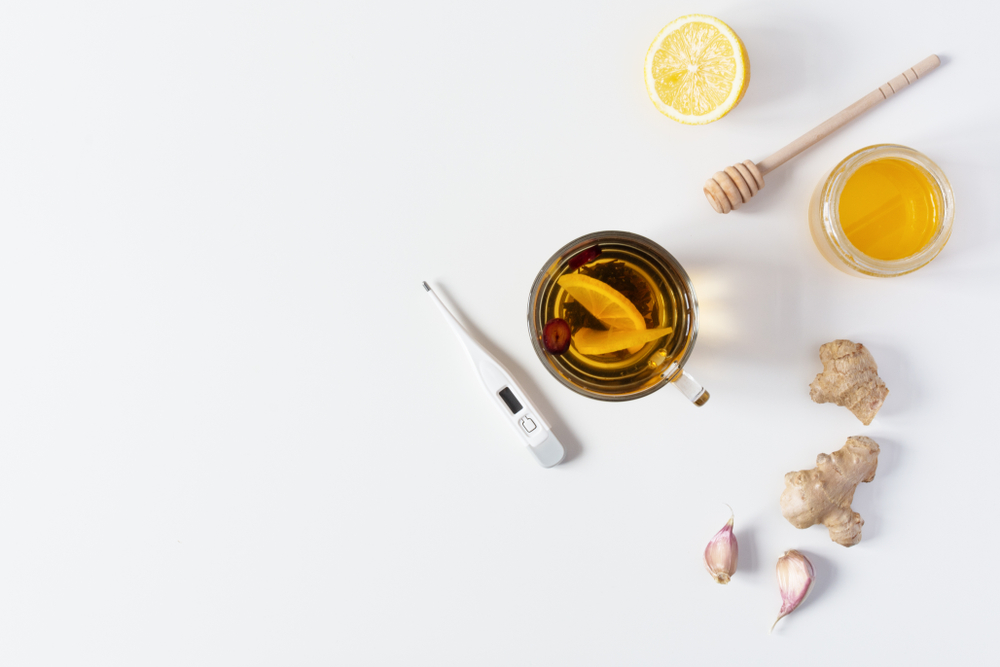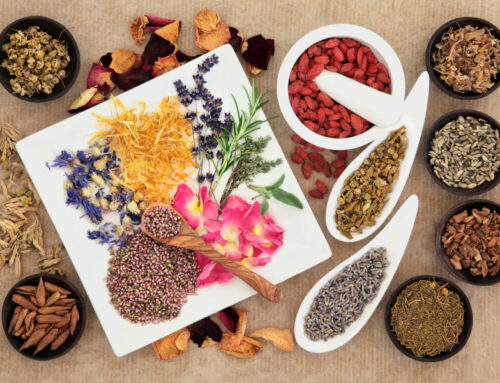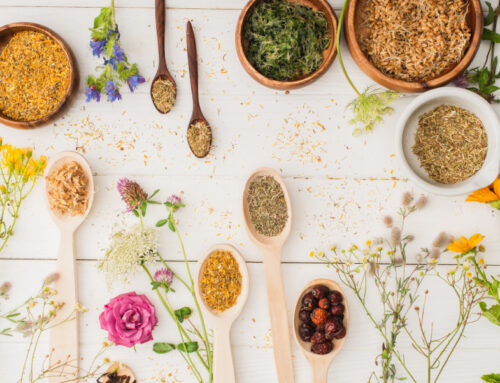By Dr. Angelina Riopel, ND
Currently the Corona Virus (COVID-19) has become the center piece of every news story. My purpose in this article is to provide you with information on how keep your immune system strong.
COVID-19 is classified as a pandemic by the WHO and the number of people infected is rising quickly around the globe. It’s important to recognize that the majority of individuals who are already or will become infected, will experience symptoms of a typical cold or flu. As with any respiratory infection, those at greater risk are the elderly (over 65) and those with underlying health conditions and lowered immunity.
Without a known cure or vaccine it’s crucial for individuals to focus on two areas; immune system health and acute care.
Prevention refers to what we can and do before we get sick. These are the everyday measures we can take to support the immune system.
Acute Care refers to what we can do once a virus has been contracted, where we have the opportunity to improve the immune response and speed up the recovery process. Acute care begins at the first sign of getting sick!
PREVENTION:
BASIC HYGIENE
Clean your hands often
- Wash your hands often with soap and water for at least 20 seconds especially after you have been in a public place, or after blowing your nose, coughing, or sneezing.
- If soap and water are not readily available, use a hand sanitizer that contains at least 60% alcohol. Cover all surfaces of your hands and rub them together until they feel dry.
- Avoid touching your eyes, nose, and mouth with unwashed hands
Cover coughs and sneezes
- Cover your mouth and nose with a tissue when you cough or sneeze or use the inside of your elbow.
- Throw used tissues in the trash.
Social distancing and self-isolating to avoid becoming infected
This is especially important for those in a higher risk category (the following is directly from the Center of Disease Control website ):
COVID-19 is a new disease and there is limited information regarding risk factors for severe disease. Based on currently available information and clinical expertise, older adults and people of any age who have serious underlying medical conditions might be at higher risk for severe illness from COVID-19.
Based upon available information to date, those at high-risk for severe illness from COVID-19 include:
- People aged 65 years and older
- People who live in a nursing home or long-term care facility
- Other high-risk conditions could include:
- People with chronic lung disease or moderate to severe asthma
- People who have heart disease with complications
- People who are immunocompromised including cancer treatment
- People of any age with severe obesity (body mass index [(BM]I)≥40) or certain underlying medical conditions, particularly if not well controlled, such as those with diabetes, renal failure, or liver disease might also be at risk
- People who are pregnant should be monitored since they are known to be at risk with severe viral illness, however, to date data on COVID-19 has not shown increased risk
Many conditions can cause a person to be immunocompromised, including cancer treatment, bone marrow or organ transplantation, immune deficiencies, poorly controlled HIV or AIDS, and prolonged use of corticosteroids and other immune weakening medications
Naturopathic Recommendations for A Healthy Immune System
A strong immune system is the key to preventing and lessening the duration and severity of any viral respiratory infection
DIET
Consume:
- Low inflammatory foods in your diet, including whole foods such as fresh fruits and vegetables, quality protein, whole grains, beans and legumes
- 7-10 servings of vegetables and fruit daily
- A lot of fluids: Hydrate frequently with clean water, herbal teas, broths and vegetable juice
Avoid:
- Excessive amounts of refined sugar and carbohydrates (baked goodies, breads and pastas). Instead opt for whole grains, beans and legumes.
- Dairy consumption entirely if possible as dairy increases inflammation and mucous in the body and respiratory system.
- Alcohol and caffeine intake
A TRADITIONAL CHINESE MEDICINE PERSPECTIVE
As this is a very new virus and we are learning more about it daily. It originated in China and they are releasing more information about their understanding of the virus from a Traditional Chinese Medicine (TCM) perspective. Below are a few recommendations that can help improve the terrain of the body.
It is considered a Turbid Damp condition.
In order to help prevent dampness from settling in the lungs, here are a few simple things that you can do:
- Warm the Center (the gut). Drink small amounts of warm water and fluids often. Warm water, herbal tea and broths.
- Thin the Fluids (blood and lymph). This is achieved by staying well hydrated with warming fluids.
- Gargle a few times of day with warm salt-water
GUT HEALTH
The gut microbiome is home to trillions of bacteria that play a crucial role in a healthy immune system. Whole foods, fermented foods, bone broths and probiotics will help to keep your gut microbiome healthy. Consume plenty and consume often!
SUPPLEMENTS
The following is a list of supplements that can aid in maintaining day-to-day health and strengthening your immune system. As each individual’s situation is unique the following does not include specific dosing recommendations. We do suggest that you speak with your naturopathic doctor or healthcare practitioner to determine your individual needs.
- Vitamin D. Your body requires vitamin D to support and strengthen your immune system. Our main source of vitamin intake is sun exposure. As we are in a northern climate with limited daytime sun exposure a vitamin D supplement is a valuable complement.
- Vitamin C. Consumed either as a supplement and/or in foods such as dark leafy greens, citrus, bell peppers and other orange-colored produce, vitamin C strengthen the immune system and support recovery from viral infections.
- Zinc lozenges help to improve local immune response. Viruses typically invade through mucous membranes, most commonly the nose, eyes and mouth. Zinc lozenges will help to improve the body’s immune response of the local tissue.
- Herbal Remedies. There are a number of herbs, including Siberian Ginseng and Astragalus that can help to boost the immune system.
- Medicinal mushrooms including Chaga and Reishi can be helpful in preventing a viral infection by strengthening the immune system. They can be taken either as a supplement, in a tincture or as a hot drink.
MANAGE YOUR STRESS RESPONSE
Fear and panic trigger stress hormones that suppress immune function. In this time of rising fear and panic surrounding the unknown relating to COVID-19, try to be particularly conscious of how you manage this stress.
Bruce Lipton, the author of The Biology of Belief and pioneer in the field of epigenetics writes:
“When an individual is in stress, the release of stress hormones (e.g., cortisol) shuts down the immune system to conserve the body’s energy for running away from the perceived stressor, that proverbial “saber-toothed tiger.” Stress hormones are so effective at compromising the immune system, that physicians therapeutically provide recipients of organ transplants with stress hormones to prevent their immune system from rejecting the foreign implant.”
Naturopathic Recommendations for Acute Care
Acute care begins at the first sign of an infection.
COVID-19 infection appears like a cold or a flu. The common symptoms are:
- Fever
- Cough
- Difficulty breathing
NOTE: If you have any of these symptoms please seek medical attention
REST
Rest is very important in order to support your body and allow your immune system to kick in and fight the infection.
DO NOT SUPPRESS A FEVER (unless you have a fever over 40 degrees Celsius)
A fever is the body’s natural response that stimulates the immune system and helps to fight off the infection. Suppressing a fever can therefore lengthen an infection.
DIET
- Avoid sugar and dairy
- Sugar, especially refined sugar, weakens the immune system
- Dairy creates mucous in the respiratory system so it can increase the symptoms of cold and flu
Hydrate. Often during a cold or flu appetite may be low. Increasing consumption of fluids containing electrolytes and broths can help to prevent dehydration. These are some suggestions:
- Bone broth
- Soup
- Vegetable juice (no fruit or root vegetables)
- Nutritive herbal teas: roobois, nettle, alf alpha, chamomile
- Immune Boosting Tea:
- A couple of slices of ginger – diced
- 1-2 cloves of garlic
- ½ lemon juiced
- 1 tablespoon of honey
- Steep in 3 cups of boiling water or simmer for 10-15 minutes
SUPPLEMENTS
- Herbal remedies can help improve the body’s immune response to the offending virus. Echinacea and elderberry are herbal remedies that are most helpful when they are taken at the first sign of an infection. They can also be taken if you are travelling or if you will be exposed to a virus.
- Zinc lozenges help to improve local immune response. Viruses typically invade through mucous membranes, most commonly the nose, eyes and mouth. Zinc lozenges will help to improve the body’s immune response of the local tissue.
- Gargle. A gargle of warm sea salt-water or Listerine (the yellow one) can help fight the infection locally in the throat and can help to lessen swelling and irritation.
Please contact Innate Wellness to book a consultation with one of our Naturopathic Doctors. We are currently offering virtual online consultations or phone consultations. 416-760-9424 or email us at info@innatewellness.viewmysitenow.com
For additional information on COVID-19 please refer to the following links for Health Canada and the CDC
Health Canada Information & Recommendations for COVID-19
For more information you can go to:
https://www.canada.ca/en/public-health/services/diseases/2019-novel-coronavirus-infection.html
Center for Disease Control (CDC) recommendations for Prevention:
For more information you can go to:






